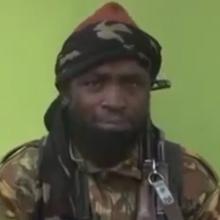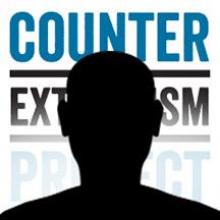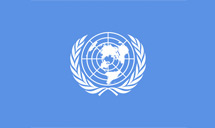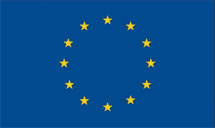Executive Summary:
Boko Haram is an ISIS-aligned jihadist group based in northeastern Nigeria, also active in Cameroon, Chad, and Niger. The group promotes a Salafist-jihadist brand of Islam and seeks to establish a caliphate, or Islamic state, in Nigeria. To achieve this goal, the group has carried out large-scale attacks inside Nigeria, including an attack on the U.N. headquarters in Abuja in 2011, the abduction of nearly 300 schoolgirls in April 2014, and the multi-day massacre of the northern town of Baga and surrounding villages in January 2015 that killed approximately 2,000 civilians. In November 2018, Boko Haram attacked a military base in Borno state—looting weapons, equipment, and vehicles, and leaving more than 100 soldiers dead. Since 2009, Boko Haram has claimed the lives of some 30,000 people, and displaced over two million, according to a January 2019 Defense Post report.
Boko Haram was founded in 2002 in Maiduguri, Nigeria, by a Salafist cleric named Mohammed Yusuf. Although Yusuf called for the establishment of an Islamic state in Nigeria, at the time he did not pursue violence as a means to achieve it. That approach changed in 2009, when Boko Haram members took up violence in response to a Nigerian government crackdown and the killing of its leader. Boko Haram has since launched paramilitary campaigns targeting the Nigerian government and its neighbors as well as dozens of terrorist attacks, increasingly perpetrated by child suicide bombers. In addition, the fluid security situation in and around Nigeria has enabled militants to cross into Cameroon, Chad, and Niger, in order to evade Nigerian security forces and carry out regional attacks.
Though originally an underground movement, Boko Haram has seized and held land in northeastern Nigeria in order to realize its vision of an Islamic state. Between 2011 and 2015, the group captured territory roughly the size of Belgium. Since 2015, the Nigerian military has dislodged Boko Haram from almost all of the territory it previously controlled. As of June 2018, Boko Haram’s geographic reach consists of Nigeria’s northeastern states of Adamawa, Borno, and Yobe, as well as to regions along the border with Cameroon, and around Lake Chad.
Nigerian President Muhammadu Buhari prematurely declared victory against Boko Haram in December 2015. However, the announcement was followed by successive suicide bombings perpetrated by the terror group in the country’s northeast. As of October 2021, the group continues to conduct attacks throughout the country and have even begun to expand their operations across northcentral Nigeria. The group has been designated as a terrorist organization by the United States, the United Nations, and the European Union.
As noted by the U.N. Security Council, Boko Haram has maintained ties to al-Qaeda’s North African branch, al-Qaeda in the Islamic Maghreb (AQIM). Various Boko Haram members trained and fought alongside AQIM in Mali before returning to Nigeria. In March 2015, however, longtime Boko Haram leader Abubakar Shekau pledged allegiance to ISIS on behalf of the Nigerian terror group. The group renamed itself Islamic State West Africa Province (ISWAP), but Shekau allegedly did not obey ISIS’s orders to stop attacking fellow Muslims or to cease using children as suicide bombers. In August 2016, following months of mounting tension between Shekau and ISIS leadership, ISIS unilaterally announced a replacement for Shekau, Abu Musab al-Barnawi, though Shekau refused to cede authority to the new leader. Boko Haram militants subsequently divided their loyalties to Shekau and al-Barnawi, with al-Barnawi’s followers amassing under the banner of the Islamic State West Africa Province (ISWAP). The two factions have since engaged in ongoing clashes, resulting in the death of several of Shekau’s associates. On June 7, 2021, ISWAP released an audio recording confirming that Shekau was killed in a May 18 standoff—in which Shekau detonated an explosive and killed himself—between ISWAP and Boko Haram in Borno.
ISWAP has attempted to absorb Boko Haram, and Shekau’s death may have weakened the resolve of some Boko Haram fighters. On June 27, 2021, a group of fighters from Boko Haram pledged allegiance to ISWAP. In a video produced by ISIS’s official media arm, several hundred men were seen defecting to the rival camp following Shekau’s death. One militant claimed, “we will unite together to fight the (unbelievers).” However, it is not clear if all Boko Haram fighters will transfer their loyalties, or if Boko Haram will be absorbed into ISWAP. Given that the video did not feature senior Boko Haram leaders, some regional experts believe the content was propaganda and that the two groups remain divided.
Following Shekau’s death, Boko Haram leaders called on militants to remain loyal to the group and continue fighting against ISWAP. On October 15, Nigeria’s military claimed that al-Barnawi was killed. However, the military did not provide details of the location of or circumstances leading to al-Barnawi’s death. Malam Bako, a member of ISWAP’s Shura Council, allegedly assumed leadership of ISWAP following al-Barnawi’s death. However, on October 22, Nigeria’s national security adviser Babagana Monguno announced that Bako, along with another prominent member of ISWAP, was “taken out” by Nigerian security forces on October 20.
Doctrine:
Boko Haram subscribes to a Salafist-jihadist ideology. Before rebranding as the Islamic State’s West Africa Province (Wilayat Gharb Ifriqiya) in March 2015, the group commonly referred to itself as Jama’atu Ahlis Sunnar Lidda’awati Wal-Jihad, which broadly translates to “people committed to the propagation of the Prophet’s teachings and jihad.” Boko Haram—the name given to the group by the Hausa-speaking residents in northeast Nigeria—translates to “Western education is sin.”
Like other Salafist groups, Boko Haram seeks to exemplify the community of Muslims (salafs, or ancestors) who lived during and immediately after the time of the Islamic prophet Muhammad. The group’s founder, Mohammed Yusuf, trained as a Salafist preacher and adhered to the teachings of Ibn Taymiyya, a 14th century scholar who preached tenets of Islamic fundamentalism. Following Yusuf’s death in 2009, the group took up the practice of takfir, whereby a Muslim is able to excommunicate and kill other Muslims whom they deem to be non-believers. In defending the right to kill his “non-believing” coreligionists, Shekau has claimed that a non-believer’s supposed “ignorance” of Boko Haram’s tenets should not be “taken into consideration” before killing him.
Because of the group’s decentralized structure, not all fighters necessarily follow Salafi-takfirist doctrine. Indeed, many members may be non-religious individuals motivated by real and perceived grievances including failures of local governance, sectarian tensions between Christians and Muslims, and the large economic disparity in Nigeria. Nonetheless, a strain within Boko Haram adheres to violent and extremist practices that even ISIS has at times deemed too brutal.
Some analysts have suggested that in recent years, the group has fragmented between factions stressing the need to build stronger links with international terrorist organizations and factions that seek to maintain the group’s exclusively domestic focus with the aim of establishing an Islamic state in Nigeria. In March 2015, Shekau pledged allegiance to ISIS on behalf of his terror group. ISIS leader Abu Bakr al-Baghdadi accepted the pledge later that month. Shekau’s pledge of allegiance to ISIS in March 2015 caused tension within Boko Haram’s ranks. According to U.S. Marine Lieutenant General Thomas Waldhauser, Shekau did not obey ISIS’s orders to stop attacking fellow Muslims, and to cease using children as suicide bombers. In early August 2016, Boko Haram’s third-in-command, Mamman Nur, allegedly reported Shekau to ISIS leadership for “killing [Shekau’s] own members, particularly commanders…just because they [question] his attacks on mosques and markets.” Boko Haram militants subsequently divided their loyalties to Shekau and ISIS-appointed leader Abu Musab al-Barnawi. The two factions have since violently clashed, resulting in the deaths of several of Shekau’s associates and his own death in May 2021.
Despite the division between Boko Haram and ISWAP and the tensions between ISIS and Shekau, Boko Haram has remained loyal to ISIS. Shortly before his May 18, 2021, death, Shekau released an audio recording elaborating on his allegiance to ISIS and his belief in the source of the division between Boko Haram and ISWAP. Shekau blamed betrayers who sought to “deceive” his followers. Shekau said he did not rebel against ISIS or its leader and blamed the rift with ISWAP on others who sought to sow division and refused to relay messages to ISIS’s leadership. ISIS leader Abu Ibrahim al-Hashimi al-Quraishi allegedly directly ordered Shekau’s death because of his continued indiscriminate targeting of “believers.”
Organizational Structure:
Boko Haram is a fractious terrorist group with a decentralized organizational structure. Below the group’s leader sits the Shura Council, a 30-member decision-making body that commands the group’s regional cells. These cells differ by location and tactical specialization, ranging from combat troops, explosives experts, welfare service providers, intelligence and surveillance, and a medical committee.
While its core fighters are believed to number in the low hundreds, thousands of locals may sympathize with and fight for the terror group. The U.S. State Department has estimated that there are at least several thousand troops fighting for Boko Haram as of 2015. Due in part to counterterrorism efforts under President Buhari—as well as severe food shortages in northeast Nigeria—this number is believed to have fallen throughout 2016 and early 2017. In December 2016, U.S. Africa Command (AFRICOM) said that Boko Haram likely lost a “significant number of fighters…lessening the overall capability of the organization.” Nevertheless, AFRICOM estimated that the group still has a “few thousand members.” Evidently not included in these estimates are the approximately 10,000 boys reportedly abducted and trained by Boko Haram between 2014 and 2016.
Boko Haram was founded and led by Salafist preacher Mohammed Yusuf until his death by the Nigerian military in 2009. Abubakar Shekau emerged as the group’s leader in July 2010, and became known for ordering attacks on mosques and using children as suicide bombers. In early 2012, a group calling itself Ansaru, or “The Vanguard for the Protection of Muslims in Black Africa,” broke away from Boko Haram after citing disagreements with the group’s indiscriminate killing of Muslim civilians. The offshoot reportedly packaged itself as the “humane” alternative to Boko Haram, and said it would focus attacks on Christians and the Nigerian government. Its leader, Khalid al-Barnawi, is believed to have previously trained with al-Qaeda’s regional affiliate, AQIM. When Ansaru was proscribed by the United Kingdom in November 2012, the Home Office referred to the group as “broadly aligned with [al-Qaeda].”
Analysts have suggested that Boko Haram and Ansaru remain operationally linked. Security analyst Jacob Zenn has said that Ansaru acts as an “external operations unit” of Boko Haram, while analyst David Otto has said that the two groups work together “towards a common goal.” Zenn has also suggested that in working alongside Boko Haram, Ansaru’s militants have prioritized operational success over ideological disputes with Abubakar Shekau. Nigerian authorities reportedly captured Ansaru’s leader Khalid al-Barnawi in April 2016 and charged him with the abduction and murder of 10 foreign nationals. According to a September 2016 report by Jacob Zenn, Ansaru has been relatively “quiet,” though Nigerian security reports indicate that the group is still active.
In August 2016—nearly a year and a half after Boko Haram pledged allegiance to ISIS under Shekau—the Nigerian terror group split into warring factions: one loyal to Shekau, and the other to ISIS-appointed leader Abu Musab al-Barnawi. The split came after ISIS announced Barnawi’s appointment on August 2, and Shekau swiftly released an audio message in which he denied the leadership change and referred to ISIS’s announcement as a coup. Shekau nonetheless reportedly reaffirmed his pledge of allegiance to ISIS leader Abu Bakr al-Baghdadi, referring to Baghdadi in subsequent audio recordings as “caliph.” The faction loyal to Shekau has usually been referred to as Boko Haram, whereas only al-Barnawi’s actions have been reported by ISIS central as the Islamic State West Africa Province (ISWAP). The two factions were reported to have clashed in the following months, resulting in the death of several of Shekau’s associates. In February of 2019, it was reported that al-Barnawi was replaced as the leader of ISWAP. His successor, Abu Abdullah Ibn Umar Albarnawi, is relatively unknown but was instated when more radical members of the faction detained al-Barnawi and seized control of the group. On March 4, 2019, Boko Haram announced that al-Barnawi was demoted to a member of the group’s Shura council, and that Abu Abdullah Ibn Umar al-Barnawi (a.k.a. Ba Idrissa) replaced him as leader. The leadership change occurred against the backdrop of larger internal disputes within the organization. In early 2020, infighting within Boko Haram continued, and al-Barnawi’s successor, Ba Idrissa, was similarly purged. Al-Barnawi was subsequently reappointed the leader of ISWAP and the faction continued to clash with Shekau’s Boko Haram.
The August 2016 split followed months of growing tension within Boko Haram’s ranks. In June 2016, U.S. Marine Lieutenant General Thomas Waldhauser told the senate that several months earlier, “about half” of Boko Haram’s militants had split from Shekau due to his alleged failure to adhere to ISIS’s counsel. According to Waldhauser, Shekau had not obeyed ISIS’s orders to stop attacking other Muslims, and to cease using children as suicide bombers.
Boko Haram has long been a fractious organization composed of various factions and offshoots. As of 2018, the most pronounced division within the group is between those loyal to Shekau and those loyal to Abu Musab al-Barnawi. Each of these camps has, in turn, a unique set of internal disputes. For example, a segment of al-Barnawi’s followers reputedly opposed his military chief Mamman Nur’s leniency in negotiations with the Nigerian government. Tension within the ranks of al-Barnawi’s faction reportedly escalated after Nur failed to exact ransom before releasing 104 of the Dapchi schoolgirls kidnapped in February 2018. Nur was allegedly killed by his own men on August 21, 2018. Boko Haram leader Ali Gaga was also executed by his own men on September 27, 2018, because he allegedly plotted to escape along with over 300 Boko Haram captives and to surrender to the Nigerian military. According to Colonel Timothy Antigha of the Multinational Joint Task Force, these incidents help portray Boko Haram as a well policed and strictly governed organization that does not tolerate disloyalty from anyone, irrespective of position or authority. However, these incidents may also indicate an emerging confidence crisis and fundamental problems with leadership and followership.
On May 18, 2021, ISWAP and Boko Haram forces clashed in Borno, during which Shekau detonated an explosive and killed himself in the process. On June 7, ISWAP released an audio recording confirming that Shekau was killed. ISWAP has attempted to absorb Boko Haram, and Shekau’s death may have weakened the resolve of some Boko Haram fighters. Following Shekau’s death, Boko Haram leaders called on militants to remain loyal to the group and continue fighting against ISWAP. On October 15, Nigeria’s military confirmed that al-Barnawi was killed. However, the military did not provide details of the location of or circumstances leading to al-Barnawi’s death. Malam Bako, a member of ISWAP’s Shura Council, allegedly assumed leadership of ISWAP following al-Barnawi’s death. However, on October 22, Nigeria’s national security adviser Babagana Monguno announced that Bako, along with another prominent member of ISWAP, was “taken out” by Nigerian security forces on October 20.
Financing:
In the early 2000s, Boko Haram founder Mohammed Yusuf reportedly received funding from Osama bin Laden, who distributed $3 million to Nigerian Salafi groups. Today, Boko Haram is believed to rely on a combination of local funding sources and lucrative criminal activity, particularly kidnapping for ransom. Its members have kidnapped foreigners and wealthy Nigerians since early 2013. The group has also reportedly received $3.15 million from French and Cameroonian negotiators in exchange for a French family the group abducted from northern Cameroon in February of that year. U.S. officials have estimated that Boko Haram receives approximately $1 million for the kidnapping and release of each wealthy Nigerian it abducts.
Boko Haram is also believed to finance itself through bank robberies, protection money from local governors, and foreign donations. It is suspected that the group also receives funding from local religious sympathizers and individuals opposing the Nigerian government. Some security analysts have noted that Boko Haram may be less reliant on large funding streams because it does not purchase sophisticated weaponry and runs low-cost operations.
The group has received limited funding from AQIM, but that support has reportedly had little impact on Boko Haram’s overall funding. Since the group pledged allegiance to ISIS in March 2015, this source of funding may have dried up, given the enmity and competition between al-Qaeda and ISIS. Boko Haram’s financial relationship with other extremist groups also appears limited. In 2016, reports emerged of starving Boko Haram members surrendering to Nigerian security forces, indicating that the group was continuing to suffer from major financial strains. Nonetheless, Boko Haram has found other streams of revenue. In February 2022, Nigerian authorities announced the discovery of 96 secret financiers of terrorism across the country providing financial support to Boko Haram and ISWAP. The Nigerian Financial Intelligence Unit also reported 123 companies and 33 bureau de change operators linked with terrorism in the country. Authorities further identified 26 suspected kidnappers and seven co-conspirators.
Recruitment:
Nigerians are likely to join Boko Haram for a variety of reasons. Among these motivations are belief in the group’s religious ideology, coercion tactics by Boko Haram soldiers, and local grievances, which may include insufficient access to government employment opportunities and other basic services, as well as humanitarian rights abuses such as unlawful arrests and torture. Recruits may also be drawn to join the group due to familial ties to other members.
Increasingly, Boko Haram is believed to forcibly conscript its members. Additionally, the group has more frequently resorted to the abduction of school children as a means of recruitment and ransom to fund their operations. Between 2014 and 2016, the group reportedly abducted 10,000 boys and trained them as foot soldiers. One such individual told humanitarian aid agency Mercy Corps: “[Boko Haram] invaded our village and asked all the youth to come out and follow them or be killed….after they killed the first person who complained of this, we all followed them.” Boko Haram is believed to send many of these conscripted recruits to Cameroon where they are “re-educated” with Boko Haram’s ideology, according to analyst Jacob Zenn.
In northeastern Nigeria alone, Boko Haram abducted more than 1,000 children in the period of 2013 until 2018. Notably, the jihadist group kidnapped over 276 Chibok girls in 2014, and as of January 2021, while some girls were rescued or freed following negotiations, around 112 of the girls have yet to be accounted for. Although the group steadily kidnapped children and women in the years following the Chibok kidnapping, it was not until December 11, 2020 that the extremist group once again carried out a mass abduction, kidnapping over 300 schoolboys in Kankara. However, on December 17, the schoolboys were released and handed over to the government, with the government claiming they negotiated with bandits rather than Boko Haram.
Furthermore, Boko Haram has not limited their abductions to Nigeria. According to the Office of the Special Representative of the Secretary-General for Children and Armed Conflict, over 5,741 violations against children—within Nigeria, Cameroon, Chad, and Niger—have been carried out by Boko Haram between January 2017 and December 2019. Reportedly, 3,601 children were recruited in that time frame with 1,385 children coerced into combat and a variety of support roles including sexual slavery. Although an exact figure was not released, the report also claimed Boko Haram mostly used girls as carriers of IEDs as “human bombs.”
Boko Haram has also attempted to recruit members by offering financial loans, referred to by the Nigerian military as “clandestine dispensation.” Such financial support may be attractive to aspiring business owners already disillusioned by the severe lack of economic opportunity in northern Nigeria. These individuals are believed to either accept loans from the group prior to joining, or join with the expectation of receiving the funds. Either way, “the payment has been surreptitiously programmed to fail by the benefactor, the Boko Haram,” according to an April 2016 statement by the Nigerian military. Boko Haram also continues to offer financial incentives. In early October 2021, for example, Boko Haram took control of multiple towns in Nigeria’s Niger state. Boko Haram recruited villagers into the group and reportedly offered money for joining.
The Nigerian government has sought to counter Boko Haram’s recruitment with its own Deradicalization, Rehabilitation, and Reintegration program called Operation Safe Corridor. Launched in 2016, the program teaches professional skills and offers amnesty to militants who voluntarily join. Since the May 2021 death of Boko Haram leader Abubakar Shekau, thousands of Boko Haram fighters and their families have surrendered to Nigerian authorities and joined the government’s deradicalization program. The Nigerian military distributed leaflets promising amnesty to Boko Haram fighters who surrendered and underwent the program. Boko Haram defectors told the New York Times they left the group because it was leaderless and no longer had a steady supply of weapons. Some defectors also said they had grown weary of living in the wilderness and feared for their survival. They also reported concerns of being treated as slaves if they joined ISWAP. Individuals who do not demonstrate sincere desires to reform are transferred to prison. Nigerian military authorities reported more than 8,000 Boko Haram militants had surrendered to the Nigerian army and benefitted from the deradicalization program as of March 2022.
Nonetheless, the program also faces criticism that it is failing to reach mid- and high-level members of Boko Haram and is, in fact, recruiting large numbers of civilians who escaped from Boko Haram and were miscategorized as jihadists. Further, there have been multiple media reports of former Boko Haram militants rejoining the group because of what they called failed promises of jobs, education, and economic improvement from the Nigerian government. Some former Boko Haram fighters told Ireland’s Irish Times they lost trust in the Nigerian government after the closure of several displacement camps. According to the fighters, the closures left them few options and forced them to return to Boko Haram to survive.
Training:
At the start of Boko Haram’s military campaign in 2009, its members used elementary tactics, such as drive-by shootings, which did not require advanced training. That process changed as the group began employing more advanced forms of weaponry, including explosives assembled by members who had previously trained alongside al-Qaeda in the Islamic Maghreb (AQIM).
Boko Haram has revealed little about how it trains its soldiers. Besides operating training camps in Nigeria, the group is believed to train its soldiers in Cameroon and Somalia. In early 2015, Boko Haram alluded to its indoctrination and training of children when it released photos via Twitter depicting child soldier training camps. The group has reportedly trained children as young as 6 years old to carry bombs into mosques and market places. In addition, many of the women and girls abducted by the terror group in recent years have been forced to carry out suicide missions. Over the years, Boko Haram has increased the number of female suicide bombers due to the easy concealment of weapons under hijabs and Islamic customs that forbid men to frisk women. Most security and control posts in the north-east are manned by male security officers which makes it easier for female bombers to walk into crowded areas with less detection. Additionally, Boko Haram recruits women to distinguish the group and its actions from other Salafi groups as well as garner greater media attention.
Also known as:
- Islamic State's West Africa Province (Iswap)
- Jama’atu Ahlis Sunnar Lidda’awati Wal-Jihad
- Jama’atu Ahlus-Sunnah Lidda’awati Wal Jihad
- Jama’atu Ahlis Sunna Lidda’awati Wal-Jihad
- Nigerian Taliban
- Wilayat Gharb Ifriqiyya
- People Committed To The Prophet’s Teachings For Propagation And Jihad
- Sunni Group For Preaching And Jihad
- Islamic State in West Africa (ISWA)
















